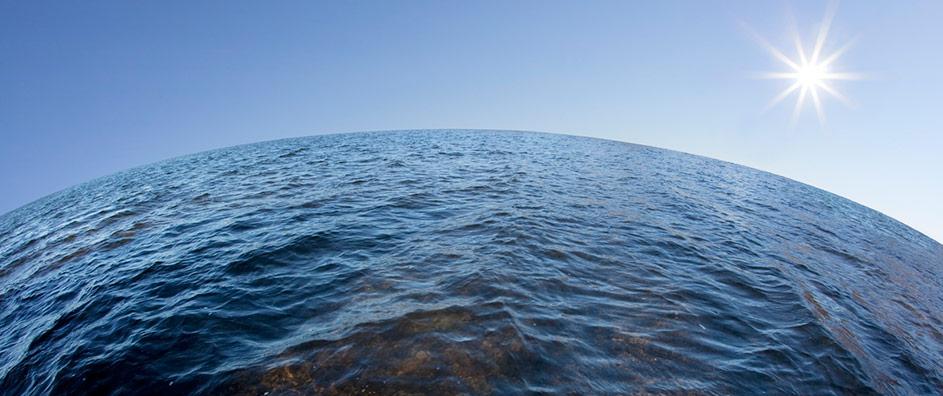The Bahá’í teachings encompass a profound understanding of humanity’s relationship with the natural world, inviting followers to contemplate the implications of climatic changes and cataclysmic events, such as the rising of the oceans. This contemplation is not merely an exercise in ecological awareness; rather, it signals a transformative shift in perspective regarding our stewardship of the Earth. The exploration of these prophetic reflections requires an engagement with the Bahá’í principles of unity, global governance, and the interconnectedness of all life.
The onset of rising sea levels due to climate change poses a complex tapestry of challenges and opportunities, as outlined in the Bahá’í writings. These teachings assert that humanity stands at a pivotal juncture, where awareness and action are paramount. The fundamental concept of the oneness of humanity underlines the necessity for collective action in addressing environmental crises. In this regard, the Bahá’í Faith urges a reevaluation of individualistic pursuits in favor of collaborative efforts that transcend national and cultural boundaries.
As oceans rise, the prospect of displacement looms large. Coastal cities, revered for their rich cultures and histories, face existential threats. In this context, the Bahá’í perspective emphasizes the importance of planning and foresight. The teachings implore societal structures to evolve, urging the creation of sustainable habitats that acknowledge and accommodate human reality within ecological constraints. The approach is not merely reactive; it advocates for anticipatory governance that proactively addresses potential crises before they escalate.
The narrative surrounding deluge and cataclysm extends into the realm of spiritual awakening. The Bahá’í writings articulate that such upheavals can serve as catalysts for collective reflection. Catastrophic events often prompt societies to reevaluate their priorities, fostering a heightened awareness of environmental stewardship. This recognition can engender a spiritually-informed discourse on the moral imperatives of conservation and protection.
In the context of Bahá’í teachings, the spiritual dimensions of environmental degradation cannot be overlooked. Actions taken to mitigate climate change are imbued with moral significance. The deliberate destruction of the planet’s ecosystems stands in stark contrast to the divine attributes of mercy, justice, and stewardship that Bahá’ís are called to embody. Followers are thus inspired to engage in practices that cultivate harmony between humanity and nature, echoing the call for a paradigm shift towards sustainability.
While the teachings emphasize a collective response, they concurrently acknowledge the role of individuals. Each person is considered an agent of change, capable of influencing their communities through informed action. This recognition is pivotal, as it empowers individuals to engage in local initiatives—ranging from community gardening to advocacy for sustainable policies. By participating in such endeavors, Bahá’ís fulfill their personal responsibilities while contributing to the broader narrative of environmental erudition.
The Bahá’í concept of the administrative order provides an intriguing framework through which to consider global solutions to rising sea levels. A system of shared governance, characterized by consultation and inclusivity, is essential for effective mitigation strategies. This administrative model resonates deeply in the context of climate change, where the need for international collaboration is heightened. The fragmentation of political entities often hinders progress, yet the Bahá’í teachings advocate for unity as a pivotal tool to address global challenges.
The vision of a global commonwealth extends to the resources and methodologies employed in combating climate change. Innovative solutions, such as renewable energy technologies and sustainable urban planning, find an ally within the teachings of the Faith. Emphasizing the use of science as a means to divine knowledge, Bahá’í principles advocate for leveraging technological advancements to foster a sustainable relationship with our planet. This harmonious integration of faith and reason stands as a testament to the adaptability and resilience of the Bahá’í perspective in the face of impending cataclysms.
Furthermore, the appeal to a “new human civilization” encapsulates the Bahá’í aspiration for a world that prioritizes equity, sustainability, and mutual respect. As rising waters threaten to inundate populated areas, the vision of a collaborative global community becomes all the more urgent. The teachings posit that through the lens of empathy and shared purpose, societies can pivot away from destructive paradigms and construct meaningful solutions for all. This collective human effort not only safeguards the planet but also enhances societal bonds, fostering resilience amidst adversity.
In light of the interconnected crises facing humanity today, the Bahá’í teachings on deluge and cataclysm prompt a reexamination of our existential motivations. Rather than succumbing to despair at the prospect of chaos, adherents are encouraged to harness the potential for growth and innovation. This mindset shift beckons a future where hope triumphed over fear, where individuals and communities unite to address the causes of ecological imbalance—and in doing so, cultivate a thriving, harmonious existence.
The implications of rising oceans resonate deeply with the core Bahá’í tenet of unity in diversity. The diverse manifestations of human experience converge upon a singular reality: the fate of humanity is inextricably linked to the health of its environment. The Bahá’í teachings challenge followers to engage with this reality constructively, drawing upon their collective strengths to ensure a sustainable and equitable future for all inhabitants of our planet. Through active participation, moral commitment, and a spirit of cooperation, Bahá’ís can embody the transformation necessary to navigate the turbulent waters ahead.
